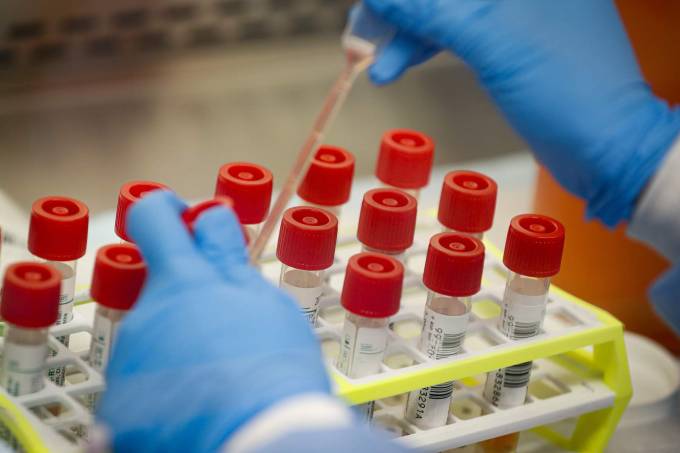Inside South Africa’s banned cigarette market

The ongoing cigarette ban has resulted in prices continuing to spike on the black market, while any benefits of the ban were mostly achieved under lockdown alert level 5, according to a recent study.
Moreover, the study found, brands associated with the Fair Trade Tobacco Association — which went to court to have the tobacco overturned — are proving big sellers under the ban.
Research conducted by the Research Unit on the Economics of Excisable Products (REEP), an independent research unit based at the University of Cape Town, found that the average price of cigarettes has increased by nearly 250 percent compared to pre-lockdown levels.
This is based on a second online survey of some 23 000 respondents the team conducted between 4 and 19 June 2020, where they found that the average price per cigarette was R5,69 or R114 per pack of 20.
This is compared to a 90 percent increase in cigarette prices noted in an earlier survey in May by the same team.
The second wave of the study also found that despite the rising prices, a smaller percentage of respondents were trying to quit. The latest research found that nearly 30 percent of respondents had tried to quit during the lockdown, citing the high cost of cigarettes, while another 14 percent said they had tried to quit due to the sales ban.
Previously, the team found 41 percent of respondents had tried to quit, with 12 percent saying they planned to start smoking again once the ban was over. More than 70 percent of smokers who quit did so before 2 May 2020.
Professor Corné van Walbeek, director of REEP, described the percentage of successful quitters as “little more than a trickle”.
The study also found that there were large demographic disparities among those who said they had quit successfully.
“Nearly half of African females and more than a third of African males who answered the survey indicated that they had successfully quit smoking. At the other extreme, fewer than 4 percent of white male and fewer than 2 percent of white female respondents indicated that they had successfully quit smoking during the lockdown,” the researchers said in a statement yesterday.
Cigarette market ‘in disarray’
Since the first survey, the percentage of respondents who had managed to buy cigarettes also increased. The team’s earlier results found that 90 percent of continuing smokers had been able to purchase cigarettes, while the second survey found that 93 percent had been able to continue buying cigarettes.
Most respondents had purchased cigarettes through informal channels, such as friends and family (27 percent), spaza shops (25 percent), street vendors (11 percent) and WhatsApp groups (8 percent). Formal retail outlets, which were the predominant source of cigarettes before lockdown (53 percent), have all but disappeared (0,3 percent), the researchers said.
Van Walbeek added that the tobacco market had “completely changed” since the sales ban.
“The tobacco sales ban during the lockdown has thrown the cigarette market into disarray. The market has completely changed.”
He said: “Whereas previously multinationals dominated the market, their share of sales has decreased to less than 20 percent among the people who were sampled. Most of our respondents have been forced to switch brands, a large proportion of which are produced by local manufacturers.”
‘Ironic’
The researchers further found that more than half of all the cigarettes most recently purchased by respondents were brands from three companies affiliated with the Fair-Trade Independent Tobacco Association (FITA): Gold Leaf Tobacco Corporation (26 percent), Carnilinx (14 percent) and Best Tobacco Company (11 percent).
But British American Tobacco, which was the industry’s major player for decades, fell to fifth place, with its brands having been purchased by only 9 percent of survey respondents who continue to smoke.
FITA has made headlines for going to court in a bid to get the sales ban overturned. Its application was dismissed with costs. The state had accused the organisation of wanting to overturn the ban out of financial interest.
Van Walbeek said this was “ironic”.
“The fact that FITA, which primarily represents the local manufacturers, went to court to get the sales ban overturned is peculiar and ironic because our results show that FITA members have benefitted disproportionately from of the sales ban.
“They have greatly increased their market share within the sample and have likely been making extraordinary profits, given their highly inflated prices.”
The study did find that smokers who continued to smoke were smoking a little less. The average number of daily cigarettes smoked decreased from 16,4 cigarettes pre-lockdown to 13,1 cigarettes in June 2020.
Half of these respondents smoked less during lockdown than before lockdown, 15 percent smoked more, and 35 percent smoked the same amount, the researchers said.
But — in an apparent contradiction to Minister of Cooperative Governance and Traditional Affairs, Nkosazana Dlamini-Zuma’s concern that lifting the smoking ban might encourage people to “zol” — the study found that more people were sharing cigarettes under the ban.
While 82 percent of respondents said that before lockdown they had never shared an individual cigarette, during lockdown this percentage dropped to 74 percent. — Fin24.









Comments